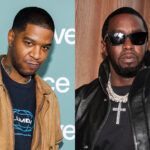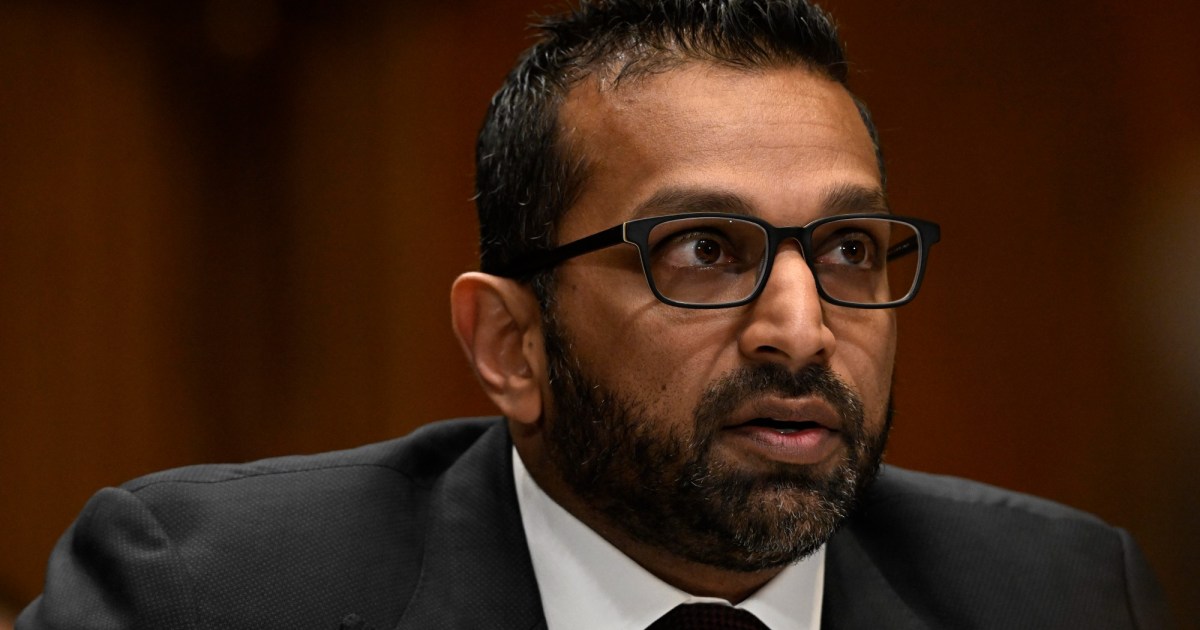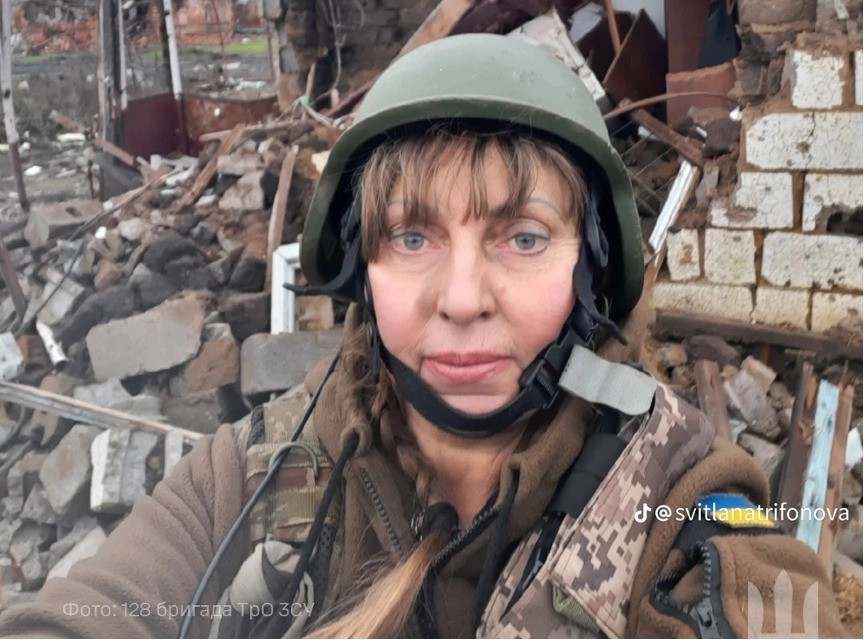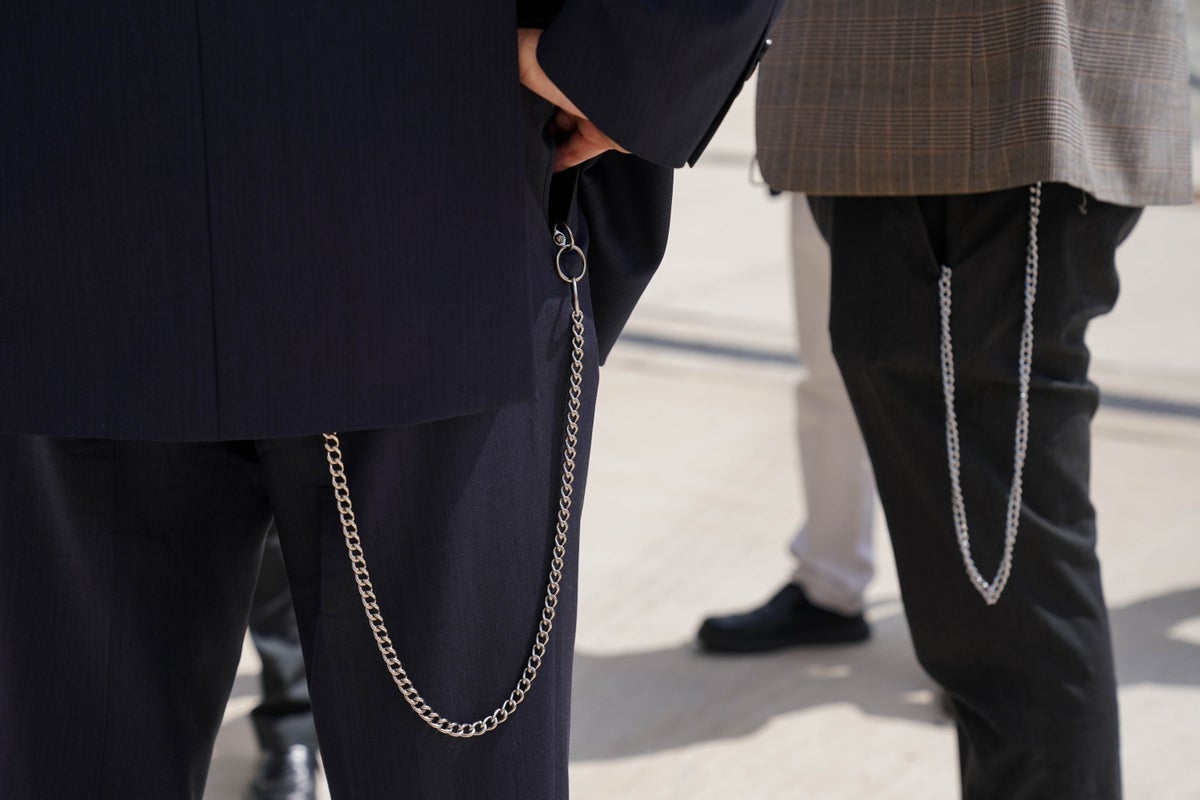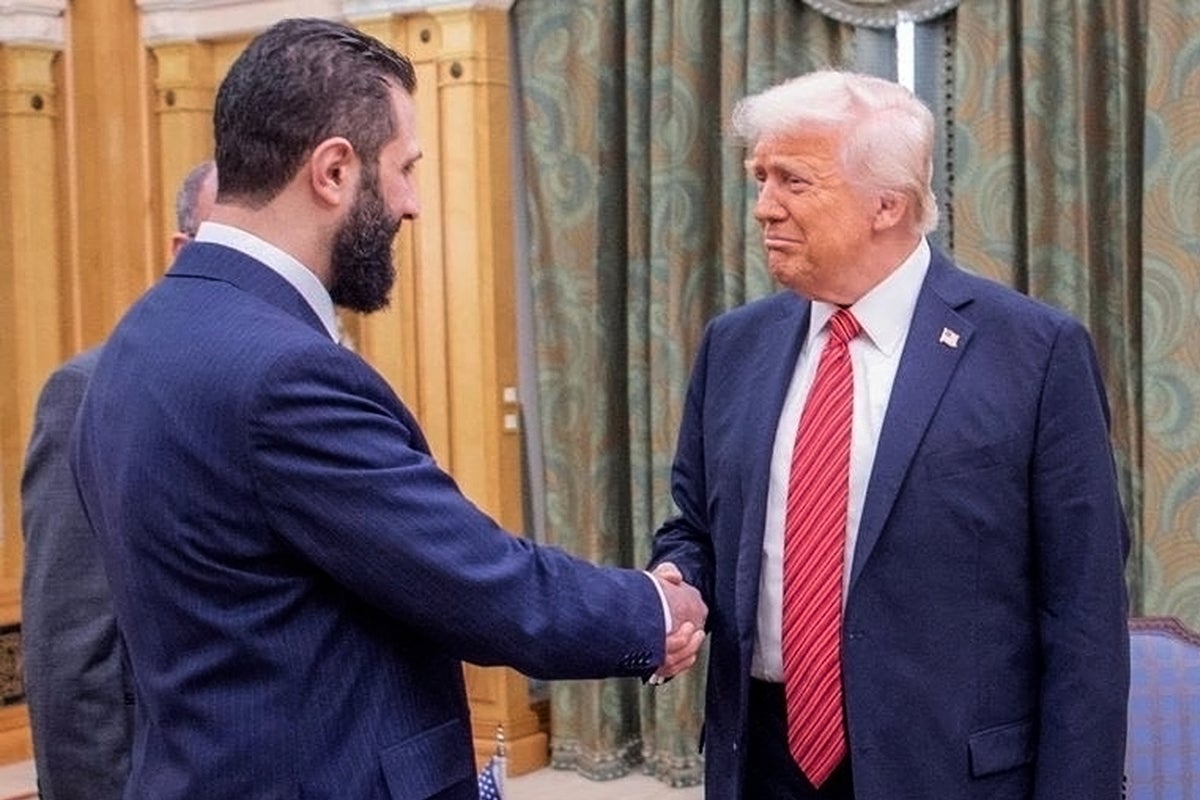In a curious twist during his confirmation process, Kash Patel failed to disclose significant personal financial information until after the Senate hearing in January on his nomination to become FBI director. Consequently, one peculiar item listed on his financial disclosure form received no attention during that hearing: Patel’s work as a consultant for the embassy of Qatar. On this document, Patel did not specify what he did for Qatar or how much he was paid.
Even now—nearly three months after he took the helm of the nation’s top law enforcement agency—the details of Patel’s Qatari connection remain a mystery.
This week Mother Jones contacted the FBI and texted Patel, asking if they would reveal what services he provided to Qatar and what payments he received. Neither responded.
Patel is just one of several top Trump administration aides who have had financial ties to this Arab monarchy. Susan Wiles, Trump’s chief of staff, worked for a lobbying firm that represented Qatar. Attorney General Pam Bondi lobbied for the Qataris. Mike Huckabee, now US Ambassador to Israel, was paid $50,000 to visit Qatar in 2018. Steve Witkoff, Trump’s special envoy to the Middle East, also has pocketed money from Qatar. In 2023, Qatar’s sovereign wealth fund bought the Park Lane Hotel from Witkoff’s company in a $623 million deal. The Trump Organization itself recently struck a deal to develop a luxury golf resort in Qatar. And now Qatar is considering handing as a gift to Trump a jumbo airliner worth about $400 million for Trump to use as Air Force One. The plan reportedly is for the 747 to be transferred to Trump’s presidential library foundation after he leaves office, where it could come under his personal control.
There have been few public clues regarding the nature of Patel’s tie to Qatar. His financial disclosure form only says that he made more than $5,000 from this work. It notes that he was paid through a company he owned called Trishul, which engaged in “national security, defense, and intelligence” consulting. According to the form, he earned more than $2.1 million in 2024 through Trishul, which had a number of clients. Those clients included the Trump Media & Technology Group, which operates the Truth Social, Trump’s money-losing social media platform. But the form does not break down how much of Patel’s Trishul income came from each client.
In an ethics agreement Patel filed with the Justice Department, he noted that under federal law he would not be permitted to engage in matters related to Qatar without receiving written authorization permitting him to do so. The agreement stated that he expected such authorization to be granted.
Last year, the Atlantic reported that Patel had claimed that he worked as a security consultant for Qatar during the 2022 FIFA World Cup in Doha. And in February—as ethics experts were questioning whether Patel’s consulting for Qatar would have required him to register with the Justice Department as a foreign agent (which he did not)—the right-wing Federalist reported, “A source close to Patel’s confirmation told The Federalist his work for Qatar was limited to securing the 2022 FIFA World Cup and other security measures, not the kind of representation that would require FARA registration.”
Patel has not offered this World Cup explanation himself. He has said nothing that has been publicly reported about his business association with Qatar. And when Mother Jones asked the Qatari Supreme Committee on Delivery and Legacy, which ran the 2022 World Cup, if Patel did work related to the event, it replied that it had “nothing to comment on this.”
Moreover, Patel’s paperwork states that he was working for Qatar until November 2024. That’s two years past the World Cup. Was he still providing security services at that point for an event that had long since concluded? Also, his financial disclosure form indicates he was paid by the Qatari embassy in the US, not the Qatari sports committee.
The whole point of financial disclosure for top-ranking US officials is for the public to be able to see the size and scope of any conflicts of interests. Yet this episode shows that the current requirements are inadequate. Patel is now heading the FBI, yet questions remain about his finances—including a $25,000 payment he received from a Russian-American-Ukrainian filmmaker who was connected to a Russian propaganda project financed by Vladimir Putin’s office.
Americans have the right know whether an FBI director is clean as a whistle and free of ties that could unduly affect or compromise his actions. Yet Patel has not provided the public a full view of his finances. And even though he is now securely in the position, he won’t explain his relationship to a foreign government with a checkered human rights record and that has has tried to influence US policy and policymakers. The Case of the FBI Chief’s Mysterious Tie to Qatar remains open.


